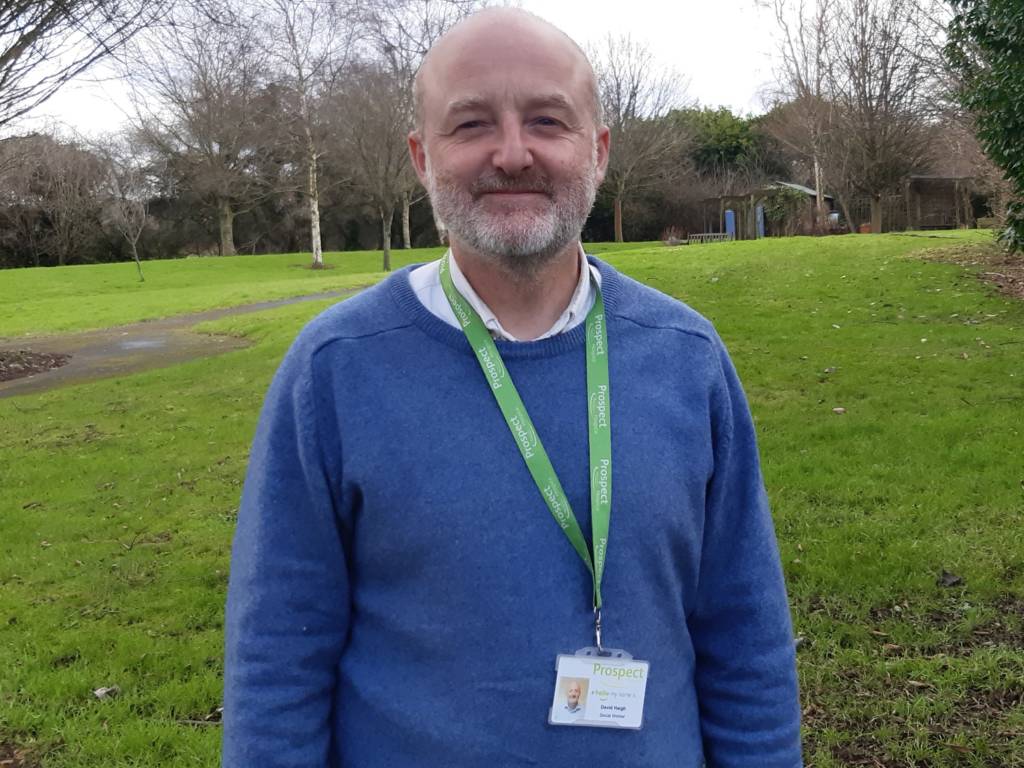David Haigh, palliative care social worker at Prospect Hospice, works with families whose loved ones receive end-of-life care from the hospice by providing practical and emotional support.
In this article he offers advice for adults on talking to young children about a loved one, such as a grandparent, who is going to die.
In my role I am regularly asked by families how they should communicate sensitively to a young child about the terminal illness of a grandparent (or parent).
The thought of talking about death to children can make us anxious, as we don’t want to cause any sadness or upset for the child or for the conversation to have any perceived detrimental impact on the child’s wellbeing in the future.
The following are a few points of reference which may enable you to feel more comfortable entering into the conversation;
Ask the child what they think is happening
A good place to start is by talking to the child about what they think is happening. This can be really helpful in understanding what they know about grandma and her illness and gives you a start to enter the conversation.
They may well have begun to pick up that things are different at home or that grandma is not as talkative or playful as she was or that mum and dad are spending more time with her. Children can be extremely receptive to what’s happening around them.
Young children will probably not entirely understand what death is and what it really means the first time they hear it or they know what death is but perceive that it happens to other people. They may see death as something reversible or temporary. Following a conversation with you a child may come back to you to ask further questions.
Someone explained it to me like a child taking a bite of an apple, then leaving it on a plate and coming back later and taking another bite. Young children need time to digest what has been said. They will likely have more questions as they think it through. Keep answers brief, simple, and age specific.
Use clear language
Use the words death and dying and not terms such as ‘passing away’ as this is unclear what it means. Only give as much information as a child wants. This is usually indicated by them asking a question – if they have asked the question it usually means that they are ready to hear, or need to hear, the answer.
Try to answer only the question asked and avoid giving extra detail. There is a fine line between being honest and overloading a child with information they do not want. Information can always be added later if needed.
I really like the book ‘Water bugs and dragonflies’ by Doris Stickney. Families I’ve worked with have felt it offered a really simple explanation to their young children about death and dying and enabled further conversations about what was happening.
Allow the child to participate in meaningful ways of saying goodbye. Draw pictures or make a gift which they can leave for grandma. If grandma is able to talk and still engaging with you all, then there may well be opportunities for the child to talk to them directly about what is happening to them. This can be hugely valuable for the child.
Keep children’s schedules and boundaries as close to normal as possible and provide affection, love, care and supportive listening. A concern for a child of this age may be around who is going to look after them if grandma was a close support. It’s really important to reiterate that the family unit will support them and be specific about how this may happen.
To summarise, talking to your children about death can feel challenging, but the important thing to remember is that you know your child better than anyone and what the nature of their relationship is with their grandparent or loved one. Think about what you want to say, ensure it is clear and honest and age specific and begin.
Honesty and involving your child in the conversation early on is much more preferable than them hearing things from third parties where you may have less control as to what is being imparted.
Death is part of life and by talking about it with our children we are helping them to understand and cope with it in the future.
Back to News

